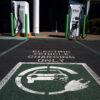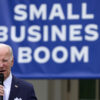Yesterday, House Foreign Affairs Committee Chairwoman Ileana Ros-Lehtinen (R–FL) held the second hearing in the two-part “Why Taiwan Still Matters” series. These hearings, the first full committee hearings on Taiwan in 25 years, are a laudable step toward reminding the Obama Administration of Taiwan’s value as a partner and the American obligations under the Taiwan Relations Act (TRA).
Recent steps taken by the Obama Administration have threatened to diminish that relationship. Most notably, the Administration denied Taiwan’s longstanding request for 66 F-16C/Ds, opting instead to retrofit and upgrade Taiwan’s aging fleet of 145 F-16A/B. The decision not to sell new fighter aircraft has elicited widespread, bipartisan condemnation from Capitol Hill.
Against this backdrop, Assistant Secretary of State for East Asian and Pacific Affairs Kurt Campbell and Acting Assistant Secretary of Defense for Asian and Pacific Security Affairs Peter Lavoy were summoned to testify before the House Foreign Affairs Committee Tuesday to report on U.S.–Taiwan relations and answer for the Obama Administration’s shortsighted decision on F-16 sales.
Chairwoman Ros-Lehtinen set the tone in her opening remark by reminding the witnesses that “any cozying up to Beijing with a wink and a nod on Taiwan arms sales is a clear violation of President Reagan’s ‘Six Assurances’” to Taiwan. She also questioned the Obama Administration’s commitment to upholding the TRA. Both Democrat and Republican members echoed her sentiments in their opening statements.
Here are some of the key highlights from the hearing.
- Campbell unequivocally denied that the U.S. in any way consulted China prior to the final decision on upgrading the F-16s. In our view, this is difficult to believe, but it’s good to hear, as any actions to the contrary would be in violation of the TRA and President Reagan’s 1982 Six Assurances.
- Campbell sought to discredit the Financial Times report that the White House is taking sides in the Taiwanese presidential election, calling its basis an “unsourced blind quote.” Campbell was referring to explicit comments from an unnamed White House source that signaled White House discomfort with Taiwanese presidential candidate Tsai Ing-wen, thereby explicitly taking sides in Taiwan’s democratic process. Yet it is not clear whether Campbell’s remarks are damage control or signal an open split within the government on the matter. There is no doubt that the Financial Times report—no fly-by-night operation—was accurate and authoritative.
- Campbell defended the U.S. State Department hosting the Burmese foreign minister, while the Taiwanese equivalent is barred from entering D.C. In our view, many of our current protocols regarding Taiwan are simply State Department legalese that are not necessarily required by the status of U.S.–Taiwan relations, such as the ban on Taiwan’s Foreign Minister visiting DC. Nothing illustrates the absurdity more than the deferential treatment afforded the Burmese foreign minister. Burma remains one of the most oppressive countries in the world, guilty for innumerable human rights abuses, while Taiwan is a responsible global stakeholder.
- Lavoy called the F-16 upgrades the “best bang for the buck.” Lavoy went on to say that the deal made sense because the upgraded F-16s will be as capable as the F-16C/Ds, and Taiwan will have 145 of them, as opposed to just 66 F-16C/Ds from the other option. Yet with Taiwan grounding its obsolete F-5s and suspending flight operations of its Mirage 2000s, the Taiwanese air force will continue to shrink if not provided with new aircraft. And even setting this aside, Lavoy is simply wrong about the relative merits of the two aircraft. His claim belies the reality that Taiwan’s F-16s have less powerful engines, which affects speed and maneuverability.
- Lavoy could not confirm that the upgraded F-16s can be fielded sooner than purchased F-16C/Ds. This was one of the Administration’s selling points when it announced the decision not to sell F-16C/Ds, but the fact that Lavoy could not confirm it only further highlights the inconsistencies within the Administration’s narrative. More importantly, it reflects the false assumptions upon which the decisions regarding upgrades versus sales have been based.
- Both witnesses staunchly defended the Obama Administration’s Taiwan policy regarding arms sales. They insisted that the $12 billion in arms sales over the last two years is a greater sum than any comparable period since the 1979 TRA was signed. In our view, however, what we are actually selling Taiwan is more important than its cost. Neither the 2010 arms package (which was initiated and sealed by the Bush Administration) nor the 2011 F-16 upgrade deal gives Taiwan what it needs to maintain a sufficient self-defense capability as required by the TRA.
Campbell and Lavoy should be commended for expressing support for both Taiwan’s acceptance into the Visa Waiver Program and increased bilateral trade and investment. But the best opportunity for lasting cross-straits peace will come when Taiwan can engage China from a position of strength, which it can attain only through active, substantive U.S. support. As stipulated by law, the U.S. must not waver in this regard.




























